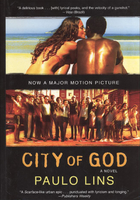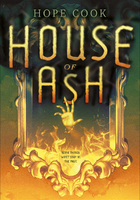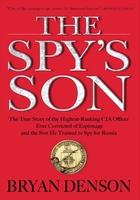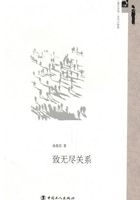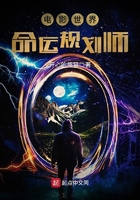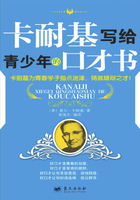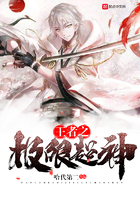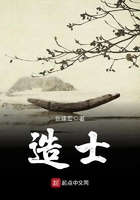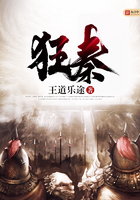You Are Not In Charge
We succeed by helping others succeed; our accomplishment is dependent on theirs. In our more expansive moments, we might say that we make them successful. In their more generous moments, they might say that they couldn't do it without us. We are often in-between, wondering how best to contribute and how much difference we make. Some of us get trapped “on hold,” waiting for the authority, waiting for others to tell us what to do. That does not work.
Our only chance for contributing is to quit waiting and wondering and do something. We serve ourselves and others best when we do not wait. Initiate, with the organization and all involved people in mind. No, we are not in charge but we can act. No, we are not formally designated leaders, but we can lead. This book will help you think of yourself as a leader, as someone who helps an organization, its people, and resources move in new directions. Yes, right from where you are, not waiting until you've moved into a more powerful position. Whether you are an individual contributor, a middle manager, a school principal, or a precinct chair, there is much you can do from your position right there in the middle of things. Whether you are an entering programmer, a journeyman mechanic, a PTA parent, or a social worker, you can choose to lead others. And, the first step in leading others at work is leading your own life.
The Illusion: Someone Is in Charge
Many of us grew up with the expectation that someone will watch over us, take care of us, be “in charge,” “know best,” and that this will turn out okay. Our families, schools, communities, and organizations taught us to believe this, but their teachings began to fray pretty early, usually before we became adults. Our contradictory experience confused us; we saw people “in charge” producing very mixed results. The people in position to “do what's best” disappointed us. Programs they created, decisions they made, did not turn out okay—at least not for us and what we wanted out of our lives. We discovered that they would not watch over us. An extremely hard part of this learning is not our disappointment in them but our struggles with our own responsibility: If they are not in charge, who is? If I cannot count on them, who can I count on? What is my responsibility in helping my family, my community, my employer, or this world? What can I, what will I, do with my life? These are the big questions lurking behind the work questions we struggle with daily.
You may be thinking, “But someday I will be in charge of that committee (or agency or division or team) and I will change things!” Well, think again. That's akin to getting married with the plan to start changing your spouse immediately after the ceremony. My research says that does not work very well. I have often heard executives lament about their difficulties in getting things done. When the president of a telecommunications company (with 23,000 employees across five states and nine hierarchical levels) first saw this book, he said “Finally, a book written for me!” His employees may not see him as not in charge, but he frequently feels that way. He knows the limitations of authority. It is too easy for us to attribute power to a position that we have yet to hold, or that others hold, and to diminish the power we currently have. This book works with the powers we now hold.
The Life Game
For a few minutes, imagine your life as a game with rules and goals, roles and scores. Life is much more complicated than a game, but tem- porarily imagine playing Life as you might play bridge, or Myst?, or soccer. Within this game called Life, you decide its purposes and rules. You decide the roles you will play; you decide what earns points; you keep score. Actions that move you toward your life goals earn points. Actions that move you away from your life goals lose points. You create the game of Life as you play it; you can change the rules. Unpredictable, uncontrollable, unreasonable outside forces influence Life. You are in the middle of Life now; you are playing.
That is how life works when seen through the simpler game metaphor. It is the largest of the many games we play: games like School, Parent, Politics, Citizen, Child, and Work. In this book, most of our attention will be directed at the game of Work as a subset of the game of Life—and the challenge of playing the two games while keeping Work subordinate to Life. Often, other people decide the explicit rules and goals for Work before you arrive. And you have implicitly decided the rules and goals of Life before you arrive to “play” Work. The challenge is engaging deeply with both games, and keeping Work within the larger context of Life. Five guides shape this book:
Create your life game. The secret of getting things done when you are not in charge is to establish a life larger than work, in which you are more in charge than at work. Without this larger, more important life game, you will end up playing by the rules of the work game, or reacting against them with no clear sense of purpose.
Learn the work game. There is a work game where you work. It has its own rules and roles, goals and penalties—whether you are aware of it or not. There are ways for people to succeed. Certain behaviors are respected; others are disparaged. Learn this. It is not a matter of liking but of understanding how this work game works.
Know your position in the work game. This allows you to know where you are starting from. Again, it does not mean that you like it, but that you understand what comes with the position you have. The best starting point for changing your position, or the work game, is to know what you are starting with. Of course, if you hate your position, you should not be playing here. Which leads to. . .
Recognize there are other work games. There are other places in this world of work where you could be offering your talents. All of those other places have work games of their own. Choose the work game you play, always honoring your larger life game. If your life game is not being served by this work game, then go play somewhere else. Your ultimate power in the work game comes from choosing to play here, and knowing you make that choice daily.
Play well and hard at both Work and Life. Concentrate. Keep reminding yourself of what is important. Know your skills and your aspirations.
The most useful ideas in this book link back to this Life and Work game metaphor. Life direction is your source of power; options open when you see your work as a vital part of your life. Creating your life game is difficult; you are the game designer, rulemaker, player, coach, referee, scorekeeper, cheerleader, and spectator. Little wonder that we often opt to play others' games, winning and losing under rules they have made. Others can help us figure out Life, but no one else can play Life for us. A pattern of playing others' games usually calls us back to our own life game: What do we want to do with this life? And how might our work support that?

